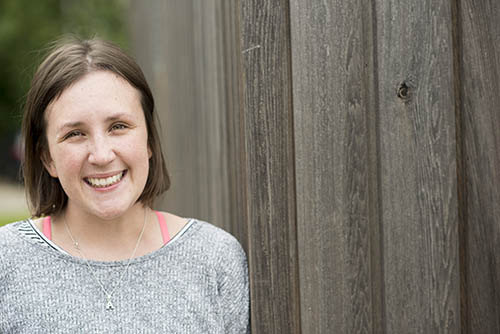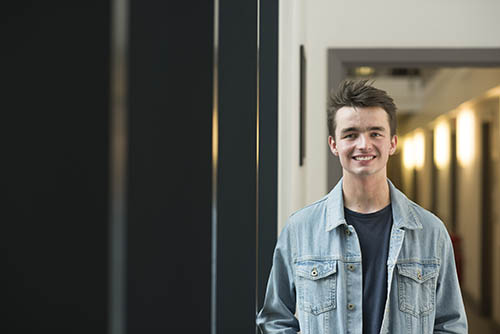How we teach
We are a small and friendly department with an excellent staff:student ratio., and our lecturers are leaders in their field. Our curriculum and teaching methods are always evolving.
University teaching is very different from learning at school or college. This guide will help you understand what studying for a degree with us involves. Degrees in our department are 3-year programmes made up of smaller units called ‘modules’. You’ll take between 4-6 modules per year of your degree. Generally speaking, for each module you take you can expect to have 1-2 screenings per week, a lecture per week and a seminar per week. But these are just the ‘contact hours’. Getting the most out of the university experience requires you to undertake your own independent study outside of class time. For each module you can expect to have at least one piece of reading (typically a chapter from a book or a journal article) each week, which you are expected to read, synthesise and think about how it applies to the film you have watched.
The screenings
Screenings are an essential part of our teaching. They are not optional. They are also not an excuse to just sit back and enjoy a film. Rather, we expect our students to watch critically and analytically. Taking notes is a must – yes, even in the dark! As you progress through the degree, you’ll become highly attuned to appreciating the ways in which style, mise-en-scène, sound and editing convey meaning. We’ll always show films in their entirety (where a complete version exists!) and we have teaching rooms equipped with 35mm, 16mm, 2k digital projection and facilities for screening Blu-Ray, DVD and VHS. Our library contains over 15,000 audio-visual items, including copies of all films taught on the course, so you can borrow them to re-watch for revision and essay writing.
The lecture
Lectures are typically 50 minutes long and contain a lot of information about that week’s topic. You’ll be expected to listen and keep up. Some lecturers will use visual aids like Powerpoint, but not all of them. Most will use clips and you will usually get a handout. The handout is not a substitute for attending a lecture because we get through way too much material to fit on an A4 sheet! Learning to take good notes is key in lectures. Don’t try to write down everything, because you’ll stop listening.
The seminar
Seminars are perhaps the biggest change from school or college. A seminar is a small group discussion led by a tutor. We teach in groups of just 8-11 students to give everyone focused attention and to allow each student plenty of space to speak. In your seminar groups you will revise key terms and topics from the lecture, discuss your interpretations of the film, unpick key passages and questions from that week’s reading, and work together to analyse a clip from the film and apply this week’s learning to it. Seminars depend on everyone getting involved and coming to them prepared (ie. having done the reading and seen the film). Tutors work hard to create supportive environments where everyone feels comfortable putting forward their views and ideas, and together you will strengthen your skills in constructing arguments, providing evidence and thinking critically.
Assessment
There are varied assessment practices in the department including blogs, visual essays, and public engagement projects. However, the two primary methods of assessment that you will encounter are exams and essays.
Essays are your chance to engage deeply with an aspect of the module that has really intrigued or interested you. They are your chance to develop sophisticated independent research skills and to improve the fluency of your written communication. Further reading, independent viewing and your own original close analysis are essential to gaining good marks.
Exams are not designed to test how well you remember every single fact you were ever taught, but your ability to link together material that has been taught on the module and marshal evidence in order to create your own original argument in response to a stimulus question. Staff will run revision sessions in the summer term to help with this.
Hear from our students:

Amy Duffell
"Studying Film and Television at Warwick has been amazing and I believe this is down to the quality of the department itself. Not only are the tutors incredibly passionate about what they teach, something they pass on to students, but they are very friendly and easy to talk to. The department may be small, but this works entirely in its favour as it offers a comfortable community, family-like feel. I believe the ethos of the department is to allow students to grow and work to the best of their abilities to achieve great things, and I have certainly felt that and will greatly miss my time spent there."

Cameron Butler
"The Film and Television Department at Warwick has provided me with a nurturing and supportive context in which to pursue and excel in a subject I am truly passionate about. Not only is the department outstanding technically, with state of the art viewing facilities and a vast library of texts, but the lecturers are some of the leaders in their field, meaning you have the best possible experience of the films being studied. The small size of the department meant that it only took a few weeks for me to get to know my fellow classmates and teachers, contributing to a close-knit community. The content is both stimulating and fascinating, covering a wide range of ground, ranging from the silent cinema of the late 19th century, to the superhero blockbusters of the modern day. It has been an absolute pleasure to come into university every day to study a subject that I love. I would therefore recommend this course without hesitation to anyone who has a passion for film and is eager to learn more about it."
